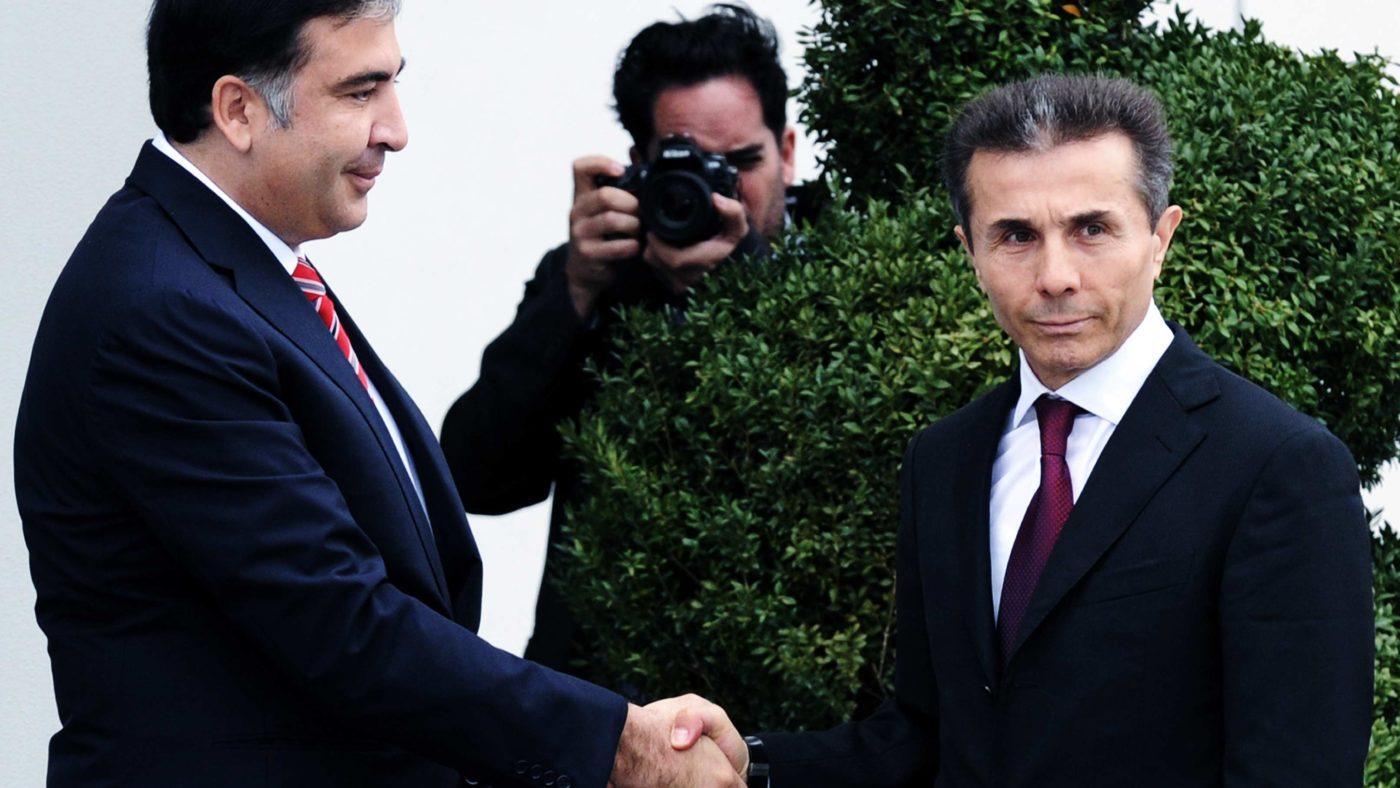For years now, Georgia has been the great white hope for western watchers of the post-Soviet world.
After its independence in 1991 brought civil war and ethnic conflict, Georgia expelled the last Soviet legacies in 2003’s Rose Revolution – before dedicating itself wholeheartedly to Europe, Nato and democracy. In October, that dedication came to fruition when the country celebrated a (mostly) peaceful round of elections.
But the years after 2003 were not always plain sailing. President Mikheil “Misha” Saakashvili’s presidency, initially hailed for its welcome and thoroughgoing administrative, police and judicial reforms, ended ignominiously. The disastrous 2008 war with Russia presaged increasing authoritarianism, culminating in the release, weeks before the 2012 election, of video documenting violent abuse of inmates in Tbilisi’s Gldani prison.
The resulting outrage saw Saakashvili swept from power, to be succeeded by a broad coalition of opposition parties – the Georgian Dream – held together primarily by the personality of its leader, Georgia’s sole billionaire, Bidzina “Boris” Ivanishvili.
Georgian politics has always been personality driven. Though parties may differ on the finer points of policy, they almost invariably revolve principally around the cults of their various larger-than-life leaders’ personalities. Even today, the split that most defines Georgian politics is neither Left versus Right, nor East versus West; it is Boris versus Misha.
More than anything else, it was the two men’s ongoing political feud that overshadowed the run-up to voting last month. Though a welter of criminal allegations prevent Saakashvili, now in exile and serving as governor of the Ukrainian city of Odessa, from returning to Georgia, his shadow loomed large over the campaign.
Days before voting began, the party of which he was once leader, the United National Movement (UNM), staged a rally in central Tbilisi. Ten thousand party faithful were serenaded by singers crooning about “waiting for Misha”, before the man himself, the party’s prince across the water, appeared by video link from the Odessa seafront to predict resounding electoral success.
Victory at the polls was not, however, to be Misha’s. The final results, released on Sunday, saw Ivanishvili’s governing Georgian Dream party, now led by his handpicked successor, returned to power with slightly more than half the popular vote and a thumping parliamentary majority. Saakashvili’s UNM, meanwhile, retained its runner-up status, dipping to 26 per cent and barely scraping into parliament, a result met with apparent shock and disbelief by party figures.
As such, Misha emerged from the close of polls humbled, while Boris, who made his billions in the Russian banking and telecoms sectors during the free-for-all 1990s, before returning to Georgia and briefly serving as prime minister after the 2012 elections, saw his influence consolidated.
The politics of personality emerged from election night the ultimate victor: stronger than ever, as the smaller parties, most of whom had fought the 2012 election as part of Georgian Dream’s coalition, were almost entirely removed from the chamber. Georgian politics is now, more than ever, about the relationship between just two men.
And it’s a problem. Though government and opposition alike are broadly pro-western, the country’s tentative moves towards NATO and the European Union – “Euro-Atlantic integration” – is not best served by personal political rivalries.
A European Georgia tomorrow requires a democratic Georgia today, and democracy demands a political culture advanced beyond personal vendettas. If the election campaign demonstrated one thing, it is that parties structured entirely around their leaders cannot be expected to behave as responsible players of the democratic game.
Though the campaign was peaceful in comparison with the messy affairs of years past, its final week saw Misha’s party, in particular, adopt tactics that would make many a dictator blush. First, audio surfaced of Misha apparently plotting a post-election coup with his closest allies, one of whom referred, tastefully, to engineering a “Gadaffi” situation, with Boris cast in the role of the late Libyan dictator.
Soon after, a UNM MP’s car was bombed in an apparent assassination plot that swiftly gave way to allegations of a “false flag” conspiracy when UNM members were named by the police as suspects in the case.
The ugly week climaxed with Misha himself weighing in, informing his followers via Facebook that he saw “no sense in participating in the second round” and claiming “gross violations” in an election international observers had certified and free and fair. That the UNM has since stepped back from the statement and confirmed its respect for the election offers a few much-needed crumbs of comfort for Georgian democracy.
But despite the campaign tribulations, and a result that has only strengthened the hand of an unaccountable oligarch who presides over Georgian public life from a private hilltop palace looming ominously over Tbilisi, Georgia’s young democracy is far from a lost cause.
The morning after election night, international observers praised the public servants charged with running the poll. In what they described as “tough circumstances” representatives of the EU, OSCE and Nato, “reaffirmed Georgia’s status as the leading democratic nation in the region”.
Georgian democracy has the basic ingredients it needs to succeed; now, Georgian political culture must move beyond Boris versus Misha. Should it do so, it may just find Euro-Atlantic integration not quite so distant as it currently seems.


